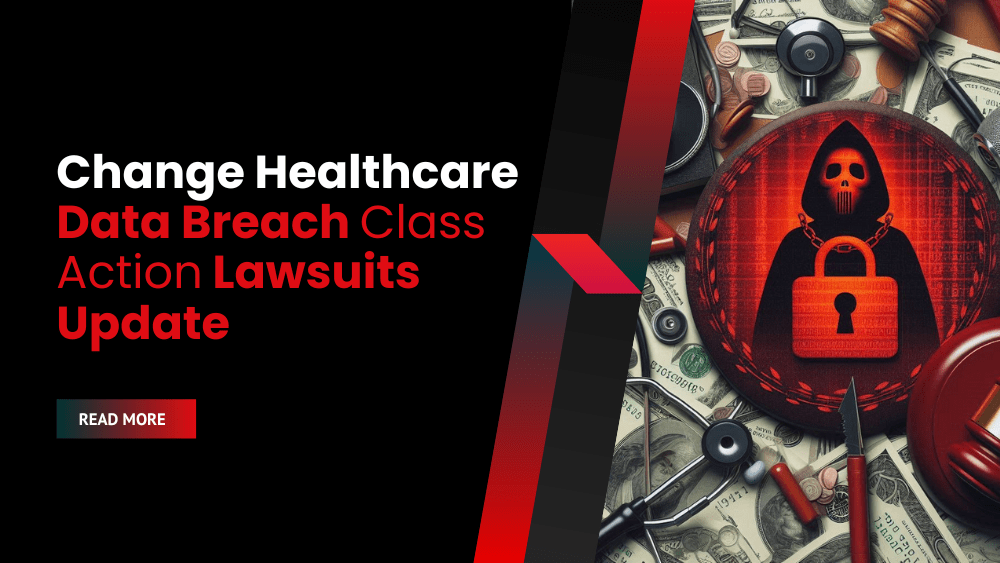Change Healthcare Data Breach Class Action Lawsuits: A Major Cybersecurity Incident
Change Healthcare, a leading technology company serving the healthcare industry, has been embroiled in a major data breach scandal that has resulted in a wave of Change Healthcare Data Breach Class Action Lawsuits. The incident, which occurred in February 2024, exposed the sensitive personal and medical information of an estimated 100 million Americans, prompting widespread concern and legal action.
The Change Healthcare Data Breach and its Impact
The Change Healthcare Data Breach was initiated by a ransomware attack launched by the hacker group ALPHV Blackcat. The attack exploited vulnerabilities in Change Healthcare’s security systems, granting the hackers access to a vast trove of sensitive data. This data included patients’ names, Social Security numbers, addresses, phone numbers, email addresses, insurance policy numbers, medical records, diagnoses, test results, treatment and insurance records, and billing information.
The breach had a significant impact on healthcare operations, disrupting medical services and causing widespread anxiety among affected individuals. Change Healthcare, a subsidiary of UnitedHealth Group, provides crucial services to tens of thousands of healthcare providers, hospitals, pharmacies, and insurers, including insurance verification, pre-authorization of procedures, and insurance claim data exchange. The ransomware attack effectively paralyzed these critical functions, leading to service disruptions and potential financial hardship for many individuals.
Change Healthcare’s Response and the Ransomware Payment
In the wake of the attack, Change Healthcare paid a $22 million ransom to the hacker group in an attempt to recover the stolen data and prevent further damage. However, the situation took a disturbing turn when another group on the dark web, RansomHub, claimed responsibility for the cyberattack and accused ALPHV Blackcat of an “exit scam,” taking the ransom money and disappearing.
RansomHub now claims to possess the stolen data and is demanding its own ransom, further jeopardizing the sensitive information of millions of Americans. The situation highlights the complex and dangerous world of ransomware attacks and the vulnerabilities of even major corporations like Change Healthcare.
The Legal Fallout: Change Healthcare Data Breach Class Action Lawsuits
The Change Healthcare Data Breach has triggered a wave of Change Healthcare Data Breach Class Action Lawsuits filed against the company. These lawsuits allege that Change Healthcare failed to implement adequate cybersecurity measures to protect patient data, leading to the massive data breach.
The Change Healthcare Data Breach Class Action Lawsuits raise several key allegations against the company, including:
- Failure to Implement Adequate Cybersecurity Measures: The lawsuits contend that Change Healthcare failed to heed warnings about vulnerabilities, maintain adequate patch management, implement basic data security practices, respond to security alerts, encrypt data, and secure backups.
- Failure to Provide Timely and Adequate Notice of the Breach: The lawsuits claim that Change Healthcare delayed in notifying patients about the breach and omitted crucial details about the root cause, the types of data compromised, and the remedial measures taken.
- Failure to Comply with Industry Standards and Regulations: The lawsuits emphasize Change Healthcare’s obligation to adhere to rigorous industry standards and comply with relevant regulations like HIPAA and the FTC Act. They cite specific violations of these regulations, alleging that Change Healthcare failed to maintain appropriate safeguards for protecting PHI, neglected to implement adequate risk management policies, and didn’t properly train its workforce on data security protocols.
The Future of the Lawsuits
The Change Healthcare Data Breach Class Action Lawsuits are currently in the early stages of litigation. The lawsuits have been consolidated into a multidistrict litigation (MDL) in the U.S. District Court for the District of Minnesota, streamlining the legal process and ensuring consistent rulings.
The outcome of these lawsuits will have significant implications for Change Healthcare, the healthcare industry, and the broader cybersecurity landscape. The cases raise critical questions about corporate responsibility for data security, the adequacy of existing regulations, and the growing threat of ransomware attacks.
The Importance of Data Security and the Need for Action
The Change Healthcare Data Breach serves as a stark reminder of the importance of robust data security measures and the devastating consequences of data breaches. It underscores the need for companies to prioritize cybersecurity, implement best practices, and comply with relevant regulations.
Individuals affected by the Change Healthcare Data Breach should take steps to protect themselves, including:
- Monitoring their credit: Sign up for free credit monitoring and identity theft protection services offered by Change Healthcare.
- Being vigilant for signs of identity theft: Watch for suspicious activity, such as unexpected bills, mistakes in Explanation of Benefits statements, calls from debt collectors, and medical debt collection entries on their credit report.
- Reporting any suspected identity theft: Contact the appropriate authorities and credit reporting agencies if they suspect their identity has been stolen.
The Change Healthcare Data Breach Class Action Lawsuits are likely to have a lasting impact on the healthcare industry, prompting companies to re-evaluate their cybersecurity practices and take steps to better protect sensitive patient data. The case also highlights the need for ongoing vigilance and proactive measures to combat the growing threat of cyberattacks.









